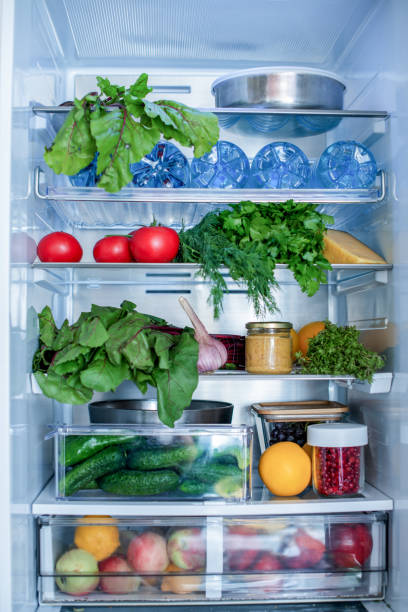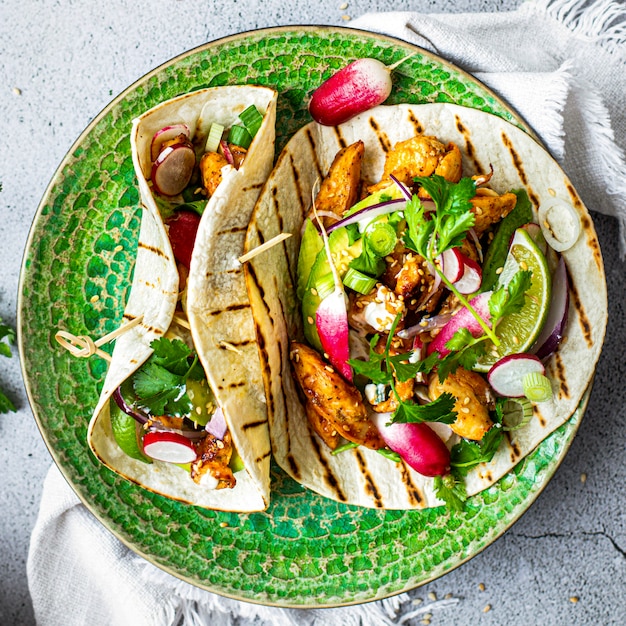The Secrets to Preserving Food Longer in your Refrigerator
"If you engage in meal preparation, you are likely aware of the crucial role that proper refrigerator food storage plays in preserving freshness, preventing spoilage, and ensuring food safety."
Home

Refrigeration is a modern-day marvel that helps keep our food fresh and safe for longer periods. However, not all foods should be stored in the same way, and understanding the secrets of effective food preservation in the refrigerator can save you money and reduce food waste. Let's delve into some essential tips for maximizing the benefits of your fridge.
1. Temperature Matters:
The ideal refrigerator temperature is 35°F to 38°F (1.7°C to 3.3°C). Keeping your fridge within this range ensures that bacteria grow slowly, extending the freshness of your food.
2. Use the Crisper Drawers:
Most fridges have crisper drawers with adjustable humidity settings. Store fruits and vegetables separately, using these drawers to control humidity levels. High humidity is ideal for leafy greens, while low humidity suits fruits like apples and pears.
3. Keep Raw Meats Separate:
Store raw meats and seafood on the bottom shelf of your fridge, preferably in sealed containers or on trays to prevent cross-contamination with other foods. This practice also ensures that any potential drips don't land on ready-to-eat items.
4. Properly Wrap and Seal:
Wrap or seal foods in airtight containers or plastic wrap to prevent moisture loss and the absorption of unwanted odors. This step is particularly crucial for items like cheese and leftovers.
5. Store Dairy and Eggs Safely:
Dairy products should be stored on shelves, not in the fridge door, where temperature fluctuates more. Eggs should be kept in their original carton to prevent moisture loss and odors from permeating the shells.
6. Use the Door Wisely:
The fridge door is the warmest part of the appliance, so reserve it for items that are less sensitive to temperature changes, like condiments, sauces, and butter.
7. Label and Date Leftovers:
When you store leftovers in the fridge, label them with the date to keep track of freshness. Consume them within 3-4 days or consider freezing for longer storage.
8. Avoid Overcrowding:
While it's tempting to pack your fridge to the brim, overcrowding can disrupt airflow and prevent even cooling. Allow for proper ventilation by leaving some space between items.
9. Use the Freezer:
If you have more food than you can consume in a few days, consider freezing it. Invest in high-quality freezer bags or containers, and don't forget to label items with the date for easy identification.
10. Regular Cleaning:
Clean your fridge regularly to prevent the buildup of spills, odors, and mold. A mixture of vinegar and water makes for an effective natural cleaner.
Effectively preserving food in your refrigerator is not only about maintaining freshness but also about ensuring food safety. By following these food preservation secrets, you'll not only reduce food waste but also enjoy the convenience of having fresh, healthy ingredients readily available for your culinary adventures.
1. Temperature Matters:
The ideal refrigerator temperature is 35°F to 38°F (1.7°C to 3.3°C). Keeping your fridge within this range ensures that bacteria grow slowly, extending the freshness of your food.
2. Use the Crisper Drawers:
Most fridges have crisper drawers with adjustable humidity settings. Store fruits and vegetables separately, using these drawers to control humidity levels. High humidity is ideal for leafy greens, while low humidity suits fruits like apples and pears.
3. Keep Raw Meats Separate:
Store raw meats and seafood on the bottom shelf of your fridge, preferably in sealed containers or on trays to prevent cross-contamination with other foods. This practice also ensures that any potential drips don't land on ready-to-eat items.
4. Properly Wrap and Seal:
Wrap or seal foods in airtight containers or plastic wrap to prevent moisture loss and the absorption of unwanted odors. This step is particularly crucial for items like cheese and leftovers.
5. Store Dairy and Eggs Safely:
Dairy products should be stored on shelves, not in the fridge door, where temperature fluctuates more. Eggs should be kept in their original carton to prevent moisture loss and odors from permeating the shells.
6. Use the Door Wisely:
The fridge door is the warmest part of the appliance, so reserve it for items that are less sensitive to temperature changes, like condiments, sauces, and butter.
7. Label and Date Leftovers:
When you store leftovers in the fridge, label them with the date to keep track of freshness. Consume them within 3-4 days or consider freezing for longer storage.
8. Avoid Overcrowding:
While it's tempting to pack your fridge to the brim, overcrowding can disrupt airflow and prevent even cooling. Allow for proper ventilation by leaving some space between items.
9. Use the Freezer:
If you have more food than you can consume in a few days, consider freezing it. Invest in high-quality freezer bags or containers, and don't forget to label items with the date for easy identification.
10. Regular Cleaning:
Clean your fridge regularly to prevent the buildup of spills, odors, and mold. A mixture of vinegar and water makes for an effective natural cleaner.
Effectively preserving food in your refrigerator is not only about maintaining freshness but also about ensuring food safety. By following these food preservation secrets, you'll not only reduce food waste but also enjoy the convenience of having fresh, healthy ingredients readily available for your culinary adventures.

